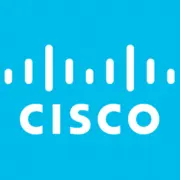Servers for the digital transformation
Modules Used
- Cisco UCS C-Series Rack Servers
Overall Satisfaction with Cisco UCS Series
It is being used across the whole organization. it address the following business problems:
- Port Reduction: The unification of the system provided a platform to reduce the number of network and storage ports I needed to consume. Fewer ports meant fewer devices, which translated into CapEx and OpEx savings.
- Scalability: The ability to scale horizontally was greatly increased by the architecture of the UCS. I could easily add servers without running cables to network and storage switches.
- Management: The UCS Manager provided a single pane of glass to manage the entire domain of UCS servers. Additionally, I could use the XML API to manage the domain as well. Flexibility wins.
Pros
- Cisco UCS is ENERGY STAR certified. In fact, Cisco UCS has the best power-to-performance ratio in the market
- Cisco UCS Manager is the only server management system that allows you to manage both blade and rack servers from a single interface.
- Cisco virtual interface cards (VICs) are converged network cards (CNAs) that extend the network fabric directly to both servers and virtual machines so that a single connectivity mechanism can be used to connect both physical and virtual servers with the same level of visibility and control.
Cons
- They are more expensive than competitors.
- Correctly applying the concept of service profiles requires significant instruction, practice, and in-the-field fine tuning. Requires extensive planning for green-field installations.
- Differences in “East-West” traffic and “Nort-West” traffic performance.
- Reduction in ongoing administrative effort.
- Network port and switch cost reduction.
- Power and cooling cost savings.
- HPE and Dell
It offers a common management interface for both the rack and the blade servers.




Comments
Please log in to join the conversation